Ever since the Ottawa Senators entered the NHL, they have had many head coaches. Far more than should be expected for a team that is barely 25 years old. In total, the franchise has had 13 coaches in their history, from their first coach in 1992-93 to their current man behind the bench.
On average, the Sens have had a new coach every two seasons. The longest-tenured, and winningest coach was only behind the bench for eight seasons. With the long list of coaches, the Senators have had quite a few big personalities. While the team has had some issues with the stability of their staff, some have had great success in Ottawa.
Rick Bowness
The first man behind the bench for the modern Senators, Rick Bowness was hired as head coach in 1992. His previous experience was quite vast, as he not only played in the AHL and NHL, but coached in the Winnipeg Jets and Boston Bruins organizations before coming to Ottawa.
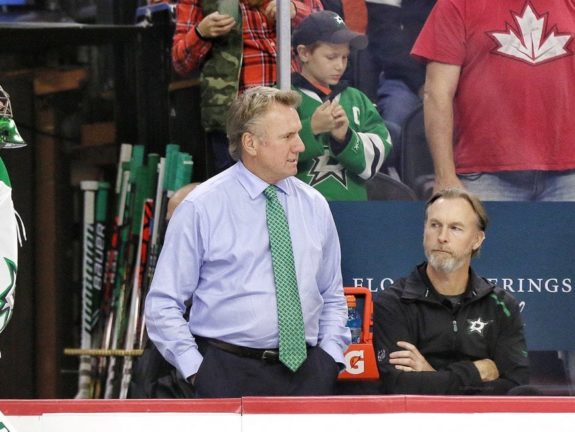
Bowness started off with a bang, winning the Senators’ inaugural game on Oct. 8, 1992, against the Montreal Canadiens. Though the team showed that perhaps the season would not go as poorly as originally thought. However, the success of opening night was an anomaly.
He was behind the bench for the worst season in Senators’ history. The 1992-93 Sens finished at a 10-70-4 record for 24 points, the second-worst season by total points in the history of the NHL. The record was not his fault, but Bowness became an image for a team without any notable players.
Bowness remained as the head coach until the 1995-96 season. He was fired on Nov. 20, 1995, after the Senators went on an eight-game losing streak, plateauing at 6-13-0 at the time of his firing. The exact reason why he was fired was not specified, with both Bowness and then GM Randy Sexton citing different reasons for his dismissal. (From “What they said: The firings of past Senators coaches, Ottawa Citizen, 12/08/2014). A major disagreement was due to the playing time of former first overall pick Alexandre Daigle, who was in the midst of becoming the biggest busts in NHL history.
Related: Stars’ Rick Bowness Tenure Starts Strong, Needs Improvement
In total, Bowness had a record of 39-178-18 over his 239 games in Ottawa. In the early years of the Senators, there was not much he could do with his roster. He was not the last coach to suffer due to his team.
Dave Allison
Dave Allison was promoted from the Senators’ AHL affiliate after Bowness was fired. Allison had been coaching for the PEI Senators since 1994, and had only coached for just over 100 AHL games. He was definitely not ready for the Senators job, and it showed (From “Frustration in the Hockey Heartland,” New York Times, 12/03/1995)
Allison only coached the team from November until January, participating in 27 games during the 1995-96 season. His record was abysmal, going 2-22-3, as the Senators fired him in an attempt to save their season. His replacement could not be able to save the season but became the most successful coach in the team’s history.
Jacques Martin
Jacques Martin took over the reins from Allison in January of 1996, and while he didn’t have a great 1996, he kept the Senators competitive in comparison to his two previous coaches. Martin’s coaching tenure produced some of the best teams in the history of the franchise.
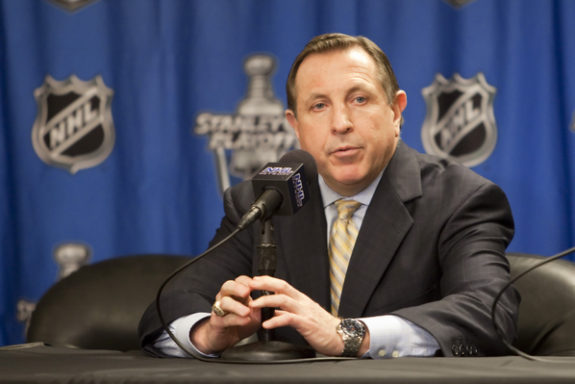
Under Martin’s guidance, the Senators made massive strides in 1996-97, making the playoffs for the first time, with a record of 31-36-15. In their first-round match-up against Martin Brodeur and the New Jersey Devils, they shocked the hockey world by taking the series to seven games but lost the deciding game. The next year, the team finished with a winning record for the first time and upset the Devils in the playoffs, advancing to the second round for the first time.
Related: Remembering the Canadiens’ 2010 Playoff Run
Martin’s team only improved in the following years, as the Sens spent the late 90s and early 2000s close to the top of the NHL. He had his personal best season in 1998-99, as he took home the Jack Adams Award for best coach. The Senators had their best regular season under him in 2000-01, where they won the Presidents’ Trophy for most points.
*During the 2001-02 season, Roger Neilson, then-assistant coach in Ottawa, was allowed to be the head coach for two games in order to reach 1000 games.
Though Martin had much success in the regular season, he never went anywhere in the playoffs. Under his command, the Sens only reached the second round of the playoffs once. His several top-seeded finishes were overshadowed by his four playoffs losses to the provincial rivals across the 401 highway. The Toronto Maple Leafs defeated the Sens in 2000, 2001, 2002, and 2004. The final loss, a seven-game series against the underdog Leafs, was ultimately his undoing. He was fired two days after the playoff loss.
Despite the playoff failures, Martin is still the winningest coach in Senators’ history. He left Ottawa with a final record of 341-235-116. When he was fired, a spot was once again left behind the bench in Ottawa. Then GM of the Mighty Ducks of Anaheim, Bryan Murray, resigned his post and took the open job in Ottawa.
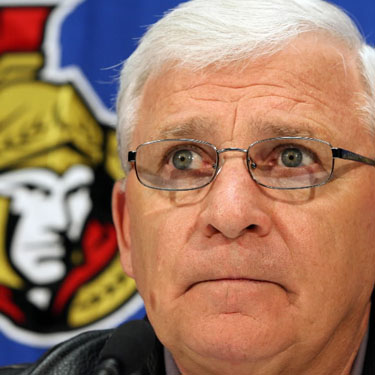
Martin would later show interest in the open Sens job in 2019.
Bryan Murray
When Martin was fired in April of 2004, Murray decided to leave the front office for the Ducks and take the empty spot behind the bench in Ottawa. Although the decision was a shock, Muray was not lacking experience. He had spent much of the 1990s coaching the Detroit Red Wings and Florida Panthers before taking the GM’s job in Anaheim.
Related: 2005-06 Ottawa Senators: What Could Have Been
Murray’s first season in Ottawa turned out to be the best in franchise history. With the 2005-06 Senators getting 52 wins, and 113 points. GM John Muckler gave Murray lots of weapons for the new season, including Dany Heatley and Dominic Hasek. He was very successful, but an injury to Hasek derailed the season, and they once again fell early in the playoffs, losing in the second round.

In 2006-07, the Senators finally reached the Stanley Cup Final after an excellent season where everything finally came together, including in the playoffs. Murray was not able to beat his old team, as the Sens lost in five games to the Cup champion Ducks.
When Muckler was fired on June 20, 2007, Murray was promoted to his position of GM. When the coaching position became available again, He promoted one of his assistants to head coach. His record during this time was 100-46-18.
Murray passed away in 2017, after a long battle with colon cancer.
John Paddock
John Paddock had been in the Senators organization since 2002, where he coached the AHL affiliate until 2005, where he became an assistant on the big club. He was promoted to head coach on July. 6, 2007.
Related: New Coaching Entourage Sees Unseen Talent
Paddock won 15 of his first 17 games in Ottawa but wasn’t able to keep up that pace. Though his team did come back to earth over the rest of the season, he was well on the way to another great season. However, a bad streak towards the end of the season was enough for Murray to fire him after only 64 games.
In his reasoning for Paddock’s firing, Murry said that his team wasn’t performing to his standards, and something had to be done. (From”What they said: The firings of past Senators coaches,” Ottawa Citizen, 12/08/2014)
There are a lot of things that aren’t fair. Sometimes things get done for the moment.
John Paddock on his dismissal
Paddock’s Senators had 94 points and held second place in the Northeast Divison when he was fired, and Murray returned to coach for the rest of the season. In 2008, yet another replacement was found.
Craig Hartsburg
At the beginning of the 2008-09 season, Craig Hartsburg was the new man to coach. Once again, the new coach didn’t last long.
This time, the record and team play did come into play. The 2008-09 season marked the end of an era in Ottawa. The Sens were not playing good hockey, and the feeling of the front office towards him was not good, and he was fired on Feb. 2, 2009. With only 48 games under his belt in Ottawa, he departed with a 17-24-7 record.
Cory Clouston
Taking over for the team when Hartsburg was fired, Cory Clouston coached the Senators for the rest of the 2008-09 season, under him, the Sens had a 19-11-4 record, but it wasn’t good enough to make the playoffs. At this time, Heatley became discouraged with his role under Clouston. The new coach did introduce a new system which saw Heatley record his lowest point total in a full season since his rookie year. When his trade request became public in June, he became a possible reason for it, to which he disagreed. Nevertheless, when Heatley was traded to the San Jose Sharks, he was put under the microscope.
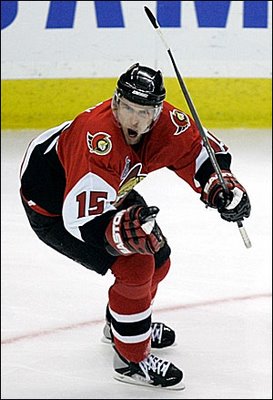
In his first full season, and as Ottawa moved on from Heatley, Clouston was very successful, clinching a playoff birth with a 44-32-6 record. They were however eliminated in the first round by the Pittsburgh Penguins.
Related: Cory Clouston and Bryan Murray Will Finish the Season in Ottawa
The following year, his success wasn’t replicated, as the Sens took a massive step-back, missing the playoffs with a record of 32-40-10. While the team dealt with serious injuries and inconsistent goaltending, (until the arrival of Craig Anderson in February), Clouston did not live up to expectations. When the season concluded, he was fired.
Paul MacLean
After Clouston was fired, the Senators brought in Detroit’s assistant coach Paul MacLean. In his first season, the team rebounded with a new coach and system. Anderson emerged as a consistent number one goalie, which the Sens had lacked. The emergence of Erik Karlsson, and Kyle Turris, combined with the resurgences of Jason Spezza, and Milan Michalek allowed them to sneak into the final playoff spot in the east. The under-dog Ottawa squad took the president trophy-winning New York Rangers to seven games, even having a 3-2 lead. Even though the Sens lost in the first round again, the year was deemed a success.
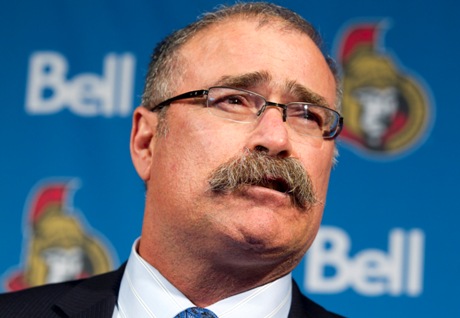
In MacLean’s second season, the Senators were hit by an epidemic of injuries. Spezza, Karlsson, Michalek, Anderson, and Jared Cowen were all out for extended periods of time. MacLean’s coaching strategies worked, as the Senators call ups who took the places of injured players like rookie JG Pageau established themselves in the line-up. In spite of the injures, the Sens were still able to make the playoffs, and face up against the Canadiens. MacLean also became the second coach to win the Jack Adams after Martin.
In the bloody series that showcased the best of playoff hockey, the Senators defeated the Canadiens in five games. This series included the famous “fat walrus” feud between Montreal and Ottawa and caused the rivalry to reach levels that had not been seen. The Sens were then eliminated in the second round against the Penguins, but McLean’s second season was a massive success.
Related: Blue Jackets Find Early Power Play Success with Paul MacLean
The 2013-14 Senators came into the season with greater expectations than in years previous. They had the same core roster, but without the injuries, and with the rookies who established themselves the year prior. Mclean’s squad had reason to believe they could seriously compete. The loss of Daniel Alfredsson did cast a spotlight on the organization, and his departure made a dent. The acquisition of Bobby Ryan was supposed to counteract that. The season did not go according to plan, as the Sens failed to make the playoffs. However, the front office did not fire MacLean, they gave him another season, it was, however, his last.
When the Senators began to struggle in the 2014-15 season, hovering at around .500, MacLean’s leash ran out. On Dec. 8, the team announced he was fired. Through his time in Ottawa, he was in general quite successful, compiling a record of 114-90-35. Meanwhile, the Sens were still in the middle of a playoff race and needed a new coach again.
Dave Cameron
When MacLean was fired, the Sens had a record of 11-11-5 and were still fighting for a spot in the post-season. Enter Dave Cameron, who was an assistant coach under MacLean, was promoted to head coach.
Related: Paul MacLean Out, Dave Cameron In as Ottawa Senators Look To Salvage Season
Cameron completely turned the team around, on the back of goalie Andrew “Hamburglar” Hammond, as the Sens won 23 of their final 31 games, and made the playoffs. A six-game loss to the Canadiens in the playoffs ended Hammond’s miraculous run, and Cameron moved on to his first full season behind the bench in 2015-16.
Cameron’s squad disappointed in his first full season, missing the playoffs again. In the offseason, Murry would resign, and appoint then assistant GM Pierre Dorion to replace him. Dorion had no plans to retain Cameron, and he and his entire staff were fired shortly after. Dorion wanted his own staff, and he found his man not long after.
Guy Boucher
On May 8. 2016, Guy Boucher was hired as the next coach. He was apart of the best Senators team since the mid-2000s. He had quite the impression on the team, leading the Sens to the 2017 Eastern Conference Final against Pittsburgh. They fought valiantly and pushed the series to seven games, but a heartbreaking double-overtime goal by Chris Kunitz ended their hopes.
Despite the heartbreak, the Sens and fans were hopeful for the future. With Boucher at the helm, the experts all said that the team was primed to begin a few years of competitive play. They were wrong; very, very wrong.
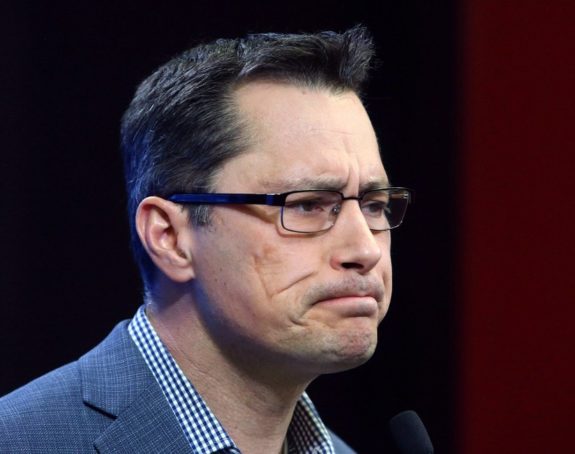
The next season saw the Senators implode, finishing 30th in the NHL. The Sens continued to nose dive the following season, and Boucher was fired on March 1, 2018, while they sat in dead last. He was not very successful in Ottawa, aside from his first season, and finished with a losing record. He was replaced with interim coach Marc Crawford, who was also replaced when the season ended.
Related: Boucher’s Tenure with Senators Is Eerily Familiar
The Sens, in the midst of their rebuild, and with fans, frustration and anger at an all-time high needed a stable coach who would come in and be able to teach younger players.
DJ Smith
DJ Smith, the Sens current coach, who was nabbed from the Toronto Maple Leafs, was responsible for the Leafs defensive core. He hasn’t been in Ottawa for long enough to get a real opinion on his work, but he has shown potential. His roster is not a good one, and the teams’ record is reflective of that, but he has worked well with what he has. The younger players like Brady Tkachuk and Collin White have meshed well.
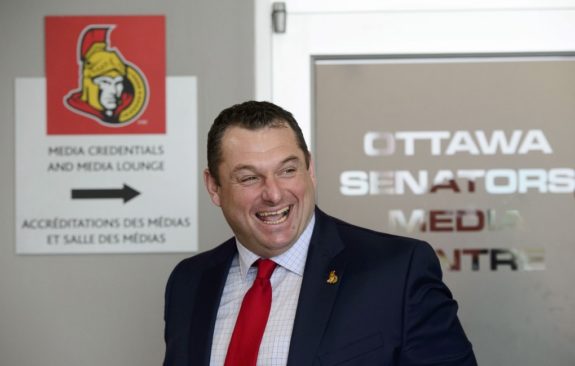
An interesting fact about the Sens most recent search for the coach, they sought permission from the Dallas Stars in order to interview Bowness for the job.
Related: D.J. Smith’s Evolution Is Key to Senators’ Future Success
As of writing this, there is no reason to let Smith go. He needs time to fold players into his system and allow the younger players to adjust to the NHL. The Senators need stability behind the bench, and Smith appears to be that answer.